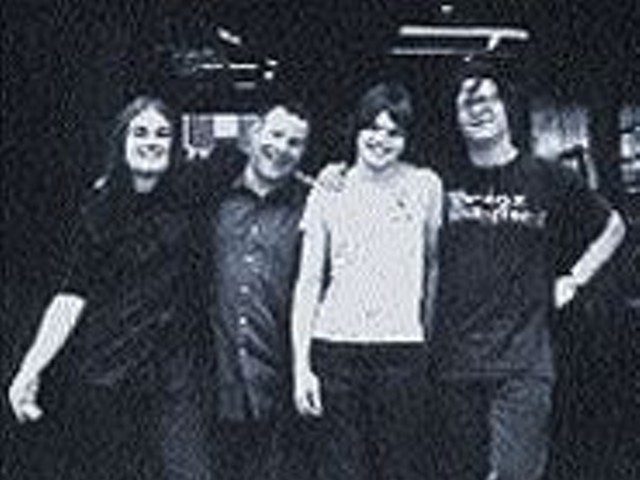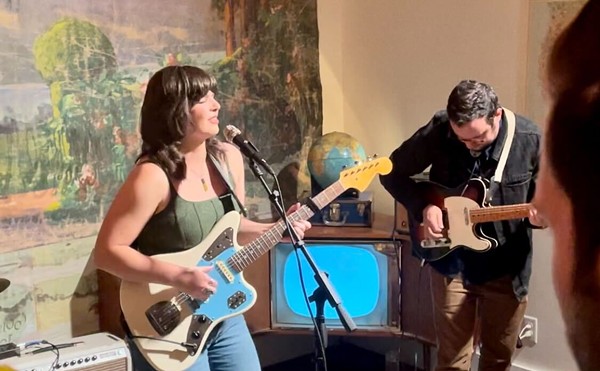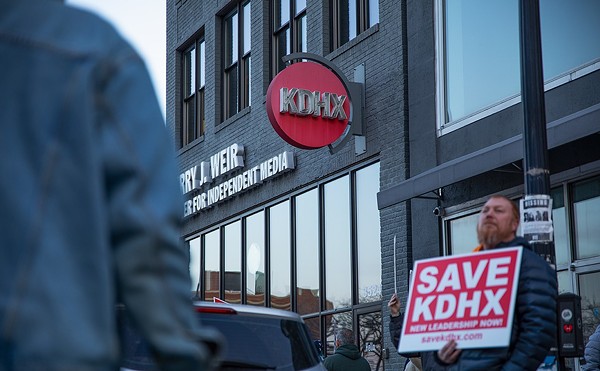"It was anticlimactic, for two reasons," he says during a break from the seemingly never-ending Okay Player tour, organized by the Roots, which hits St. Louis this week. "First, the DJ got the name wrong. (He mimics the radio announcer:) "And that was Roots.' I hate it when they don't call us the Roots. On top of that, it was a hip-hop show, and Smif-N-Wessun, who were this group from Brooklyn, were on the show as well. They were doing an interview, and they were using our song as background music, talking over the music. It was cool. They played our song, and then they played the instrumental while the DJ was saying, "OK, now we have Smif-N-Wessun ...' So they wanted this group to freestyle, and one of them was, like, "OK, but I ain't freestyling to this. This is like Fat Albert and the Gang.' It was an unorthodox song, and all the music was done by humans. So it was, like, driving in mid-Manhattan traffic hearing one of your favorite rap groups say your song "sounds like Fat Albert. I ain't rhyming over this.'"
No doubt what Smif or Wessun was reacting to was the nature of the Roots, which in '93 must have sounded as if they had landed from another planet and sound equally alien seven years and five albums later: The Roots are a hip-hop group but play all their own instruments; they're not a posse that creates music inside a silicon chip using breakbeat samples and stolen riffs. Strange as it may seem -- in the world of hip-hop, at least -- they play it on bass, drum, keyboards, guitar and other such organic instruments. The result is jazzy and funky, with a solid, warm groove that ebbs and flows with emotion rather than looping mechanically. There are real handclaps and finger-snaps, real rhythm, real groove. Real -- or, as Smif or Wessun put it, "like Fat Albert.'
Thompson and Tariq "Black Thought" Trotter, the core of the group, founded the Roots in Philadelphia in the late '80s as the Square Roots after meeting at a performing-arts high school. Lacking the funds to buy the requisite samplers and beat boxes to create sample-based hip-hop, the two decided to try going old-school. Thompson, a drummer, could provide a steady, sparse beat, and Trotter didn't need much other than his brains to create powerful rhymes. The result was an epiphany, and after their initial indie effort, Organix, produced an underground buzz -- no other group of substance was doing it the Roots way, and few in any hip-hop school had the intellect of the Roots -- they filled out their lineup and signed to David Geffen's DGC imprint in 1994. Even as relative freshmen in the game, though, the Roots understood how it was played, and, says ?uestlove, acted accordingly: "Our stance was "We have to be so Teflon that they would be embarrassed to drop us.' While making [their label debut] Do You Want More?, we knew that had to be an album so critically acclaimed that the label would be embarrassed to drop us. And then that wasn't enough: We had to make our live presentation so bulletproof that it would actually be a travesty. We had to make them look bad. And that's precisely what happened. They were, like, "Damn, we were going to drop you, but apparently the whole world loves you, and we just don't know how to market you. We're sorry. Here's another check.'"
On the transcendent fourth release, Things Fall Apart, the Roots went from being "a rap group that play their own instruments" to simply a group, one that combined the best of American black music, from jazz to funk to R&B to hip-hop, to create something unique; no longer were they replicating the sound of the beatbox with "real" instruments. They were making great American music. Although earlier efforts were impressive, especially 1996's Illadelph Halflife, often these early records were rigid. Things Fall Apart was a living, breathing organism, the result, no doubt, of endless touring, endless jamming, endless inspiration. "The Next Movement," is one of the best singles of the '90s: Handclaps mingle with a Fender Rhodes riff; legendary DJ Jazzy Jeff provides tense, melodic scratching; and a female chorus, the Jazzyfatnastees, rings melodic bells. Things Fall Apart is a hip-hop masterpiece, tense and thoughtful, textured and dynamic. Unlike most flavor-of-the-month hip-hop releases that might as well have an expiration date printed on the label, the record opens up on examination.
"I want to do art records," ?uestlove says, "you know what I mean? Anything I do, I endorse, but it's always been my dream to do art records, and I want to do something more in the spirit of something closer to Fear of a Black Planet or Paul's Boutique or the last two Bomb Squad classics, the Young Black Teenagers' first record or the Son of Bazerk record."
A sampling of this Roots expansion can be heard on the soundtrack to Spike Lee's Bamboozled, on which the band, with Chuck D of Public Enemy and Zack De La Rocha, formerly of Rage Against the Machine, create a manic riff on a Public Enemy song. The track, "Burned Hollywood Burned," is fast and furious, much faster than the Roots usually are. ?uestlove says that was intentional, that he set out to accelerate hip-hop from the slow, steady 90-beats-per-minute rut it's in now, to change things. But, he laughs, the Outkast beat him to the punch.
"I commend them on that shit," he says of the Outkast's "B.O.B." "I'm just mad they beat me. It's funny, because, basically, when Spike Lee approached us to do the Bamboozled project, at that point I was trying to figure out what direction am I going to take the group this time, simply because every time we come out it's something different." But, he says, "I'll never forget. I was in Paris -- I mixed it in Paris -- and I got back on my computer and, man, I don't believe it. I got an e-mail: "Yo, you gotta hear this shit.' And I clicked it, and it sounded like Tricky on acid. "Who the fuck is this?' "It's the new Outkast, man. They're about to beat you at your own idea.'
"Hip-hop as your parents' favorite music is not pleasing to me. It's not a thing where you have to be threatening and only the kids get to like it, but I think (the Outkast's) Stankonia, that album is definitely the first step into making experimental like it used to be." Enter the forthcoming Roots album, to be released in October 2001. ""Burned Hollywood Burned' was the first step into it," says ?uestlove. "Not Bitches Brew, but it will be experimental, I guarantee. We're going to call it Introducing the Roots."





